2019 International Ophthalmology Forum: Artificial Intelligence and Artificial Vision (IOF-AIAV) was co-sponsored by the Asian-African Ophthalmology Society, Guangdong Medical Association, Zhongshan Eye Center of Sun Yat-sen University, and Shenzhen Eye Hospital from May 24-26, 2019 Famous international and domestic experts in the field of ophthalmology are invited to brainstorm around the theme of "Artificial Intelligence and Artificial Vision" and have a wonderful spark of thought.
The chairman of the conference, Professor Wu Lezheng, first extended a warm welcome to the experts and friends who came from afar to participate in the event. Professor Wu said that although there are still some problems to be solved in the development and application of artificial intelligence at this stage, he believes that the application of artificial intelligence will inject new vitality into the medical industry.

Professor Wu believes that the current development of robotic surgery faces two major obstacles: one is that the surgery is expensive, and the other is the psychological factors of the patients. Some patients will prefer the traditional surgical mode. But Professor Wu believes that these obstacles will be gradually overcome. Professor Wu believes that robotic surgery has greater potential and advantages than traditional surgery. The combination of artificial intelligence and ophthalmology will definitely bring more benefits to patients and promote the development of the entire ophthalmology. At the same time, Professor Wu also firmly believes that with the speed of China, China's artificial intelligence will develop rapidly and create more miracles.

Dean Wang Jiantao of Shenzhen Eye Hospital introduced that the visual condition of the people in our country is not very optimistic. There are nearly 13 million visually impaired patients, and 30% of them suffer from incurable blindness. Blindness is one of the most serious diseases affecting the quality of human life. The causes of blindness are different, and the required visual prostheses are also different. The current application of visual prostheses still has great limitations and cannot achieve good expected results. Dean Wang Jiantao believes: "Artificial vision can help blind people perceive light and objects, and artificial intelligence will do a lot in this regard."

The vice chairman of the conference, Professor Lin Haotian, said that the forum was the first international forum focusing on "ophthalmic artificial intelligence". The eye is the most important body surface organ of human beings. The acquisition of eye images and information is relatively convenient. The development of artificial intelligence in ophthalmology has important academic advantages. From a macro point of view, although artificial intelligence currently has only a few years of human intelligence, it is very good at completing tasks with high standardization requirements. The rare disease electronic hawk eye system developed by Professor Lin Haotian's team is an encouraging achievement and breakthrough. The related research results were published in the journal Nature Biomedical Engineerin.

Sun Meihua, inspector of Shenzhen Health and Health Committee, co-chair of the conference, Professor Liu Yizhi, director of Sun Yat-sen University's Zhongshan Ophthalmic Center and Dean of Ophthalmology Hospital, and Tharwat H. Mokbel, vice-chairman of the Asian-African Ophthalmology Society, delivered speeches. Ms. Wu Yihuan, deputy mayor of Shenzhen Municipal People's Government, and Mr. Zhong Hai, deputy director of Shenzhen Science and Technology Innovation Committee, attended the meeting.
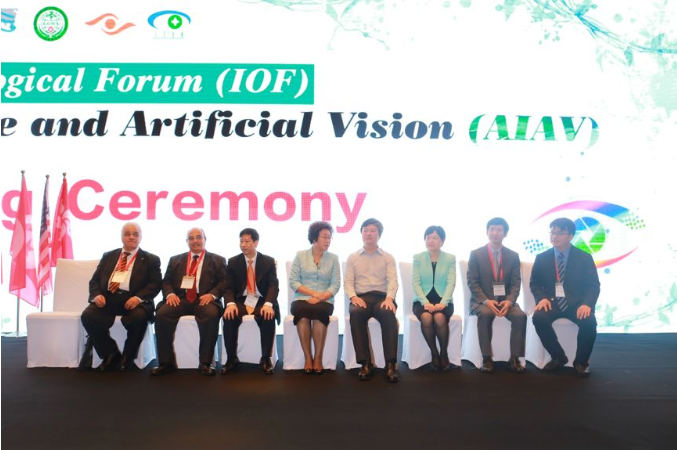
From left: Tharwat H. Mokbel, Vice Chairman of the Asian-African Academy of Ophthalmology; Dr. Tarek Mamoun, Secretary-General of the Asian-African Academy of Ophthalmology; Professor Liu Yizhi, Director of the Zhongshan Ophthalmic Center and Dean of the Ophthalmology Hospital, Sun Yat-sen University, Zhongshan University Ms. Wu Yihuan, Mr. Zhong Hai, Deputy Director of Shenzhen Science and Technology Innovation Committee, Inspector Sun Meihua of Shenzhen Municipal Health Committee, Dean Wang Jiantao of Shenzhen Eye Hospital, and Professor Lin Haotian of Zhongshan Eye Center of Sun Yat-sen University
In addition, the forum invited more than 70 experts and scholars from Singapore, South Korea, India, Egypt, Morocco, Tunisia, Pakistan, and Hong Kong and Taiwan. They gave wonderful academic lectures on topics such as the application of artificial intelligence, ophthalmology expo, artificial intelligence and medical treatment, big data and intelligent medical treatment of ophthalmology, artificial intelligence and image analysis, artificial intelligence and glaucoma, artificial vision and other topics.
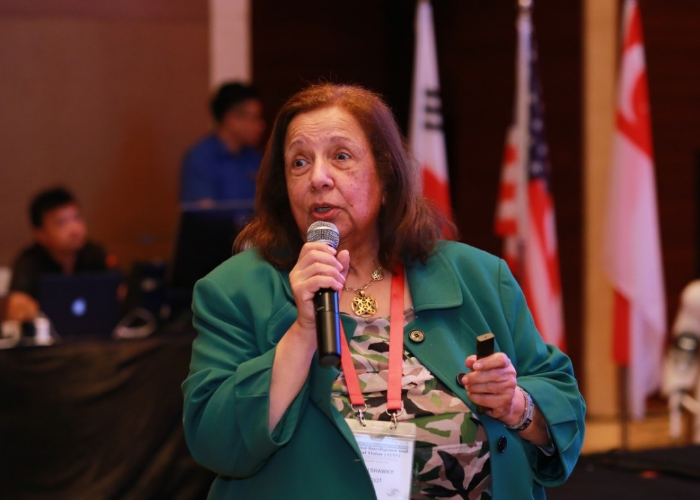
Egyptian Ophthalmological Society chairman shares research on receding eye syndrome
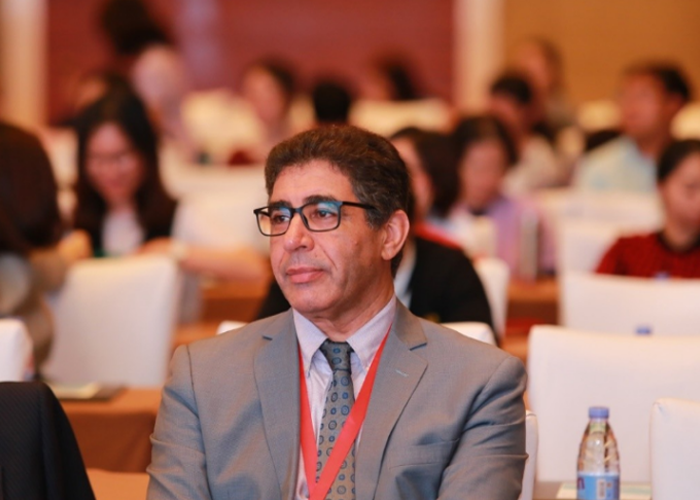
Moroccan Glaucoma Association Chairman shares scleral ciliary body photocoagulation experience to improve surgical efficiency and safety
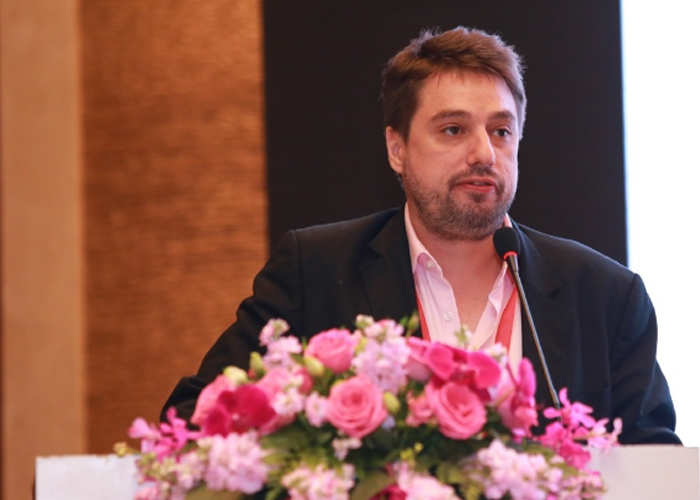
Dr. Michael Girard from Singapore Eye Institute shared "OCT images and artificial intelligence diagnosis of glaucomatous optic neuropathy"
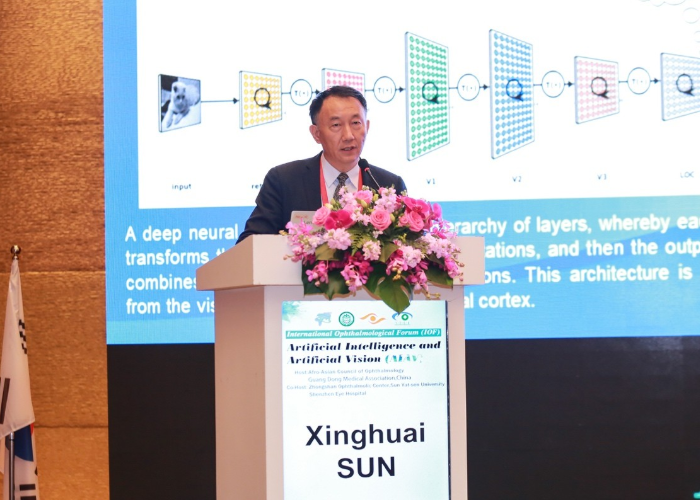
Professor Sun Xinghuai of Fudan University shares "Artificial Intelligence or Intelligent Assistance of the Retina: Clinical Outlook"

